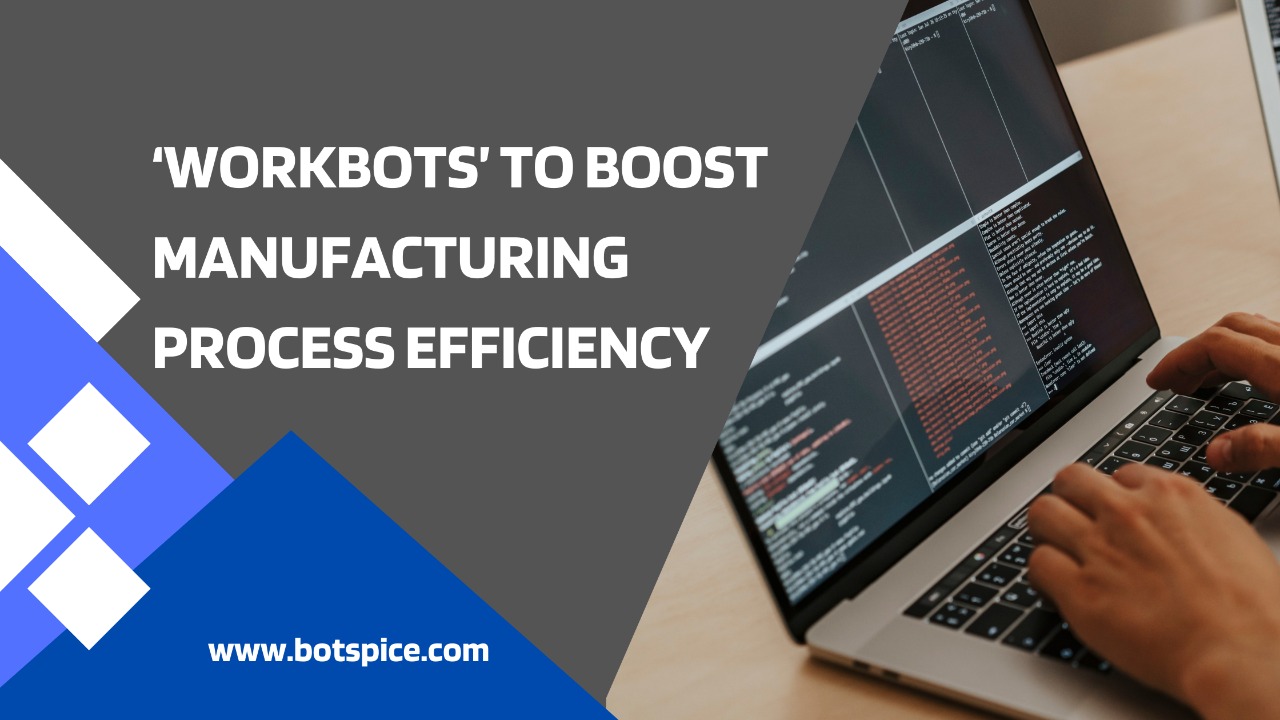Chatbots are digitizing various business processes across industries. To stay ahead in the market competition, it is crucial to adapt technology to speed up business processes. The manufacturing industry is one such industry that can tremendously benefit from AI-enabled digital applications. Workbots can help address and resolve the common challenges faced by the manufacturing industry such as forecasting demand, inventory management, managing labor, improving efficiency, and monitoring daily activities, creating solutions with conversational AI-powered Workbots will ensure workers are free from mundane tasks and focus more on high-volume tasks.
29% of AI implementations in manufacturing are for maintaining machinery and production assets.
Workbots by Botspice, are powered by Artificial Intelligence, Natural Language Processing, and Machine Learning technologies. They can streamline manufacturing processes by providing information on the go. Deploying Workbots can help overcome the challenges mentioned earlier without any major human intervention, thus paving the way to create greater profits and a competitive edge in the global marketplace.
The manufacturing industry will be able to benefit from AI-powered Workbots in the following ways:
- Streamline and synchronize processes between roles and departments.
Supply chain management systems can now function smartly, thanks to AI. Augmenting Workbots for supply chain management ensures efficiency in the process and also saves a lot of time. Manufacturers are also often faced with aggressive deadlines and inter-communicating between roles and departments becomes pivotal. Workbots can be integrated with existing ERP and CRM solutions, thus making information available to the user in seconds. This not only saves time but also ensures maximum efficiency while reaping greater returns.
- Manage supply chains and improve communication with stakeholders.
Many manufacturers tend to treat every lead in the same way. Prioritizing leads could benefit manufacturers tremendously by improving communication and maintaining a long-term relationship with stakeholders. Workbots can help by creating a system that is easy to manage and track prospect’s information.
- Monitor safety and maintenance inquiries.
For the smooth operation of any manufacturing plant, the workspace environment and processes need to be well organised. Workbots provide real-time insights that help to keep track of targeted processes. If there is a fault in any machine workers can immediately raise a ticket without wasting time instead of going through a formal email channel that could take time and hamper immediate resolution of the problem. Equipment metrics can be accessed and any possible asset failure can also be predicted. This information can be accessed without having to log in to any other software system, thus improving overall efficiency.
A recent study showed that unplanned downtime caused by machinery costs manufacturers an estimated $USD 50 billion annually, and that asset failure is the cause of 42 percent of this unplanned downtime.
- Manage HR activities.
People are a major factor in a manufacturing unit. Managing labour is a task considering the nature of the worker’s jobs. Unlike office environments, factory workers are unionized which means HR in manufacturing units must be experts on union contract issues, such as negotiation and compliance. Workbots can bridge the gap between the union workers and the HR team. This helps to create an amicable manufacturing environment, where workers can raise their issues through intelligent conversations for timely resolution.
- Stay up to date on inventory status.
Workbots powered by AI can predict demand patterns to get accurate forecasting results through the analytics tool. With these analytic tool’s manufacturers can manage their inventory better by preventing “material-in-stock and out-of-stock” scenarios from happening. Inventory management is crucial as it can predict any delays or hiccups in the manufacturing flow.
- Identify demand patterns through customer service Workbots.
Customer service workbots are used widely to understand customer buying behaviour and trend analysis. The manufacturing industry is no different. Manufacturers can predict demand, trends and customers behaviour to facilitate adjustments in manufacturing processes based on these insights. This would allow manufacturers to make smarter and more informed decisions that can save time and money.
In Conclusion
There is no doubt that Workbots can bring tremendous benefits to the manufacturing sector. We have simply mentioned a few use cases here. With humans and technology working in unison, transparency and trust, the best time to exploit and explore Artificial Intelligence is now! Workbots by Botspice, provide personalized augmented operations that are easy to implement and cost-effective.
Prepare to rethink manufacturing processes with Botspice!

